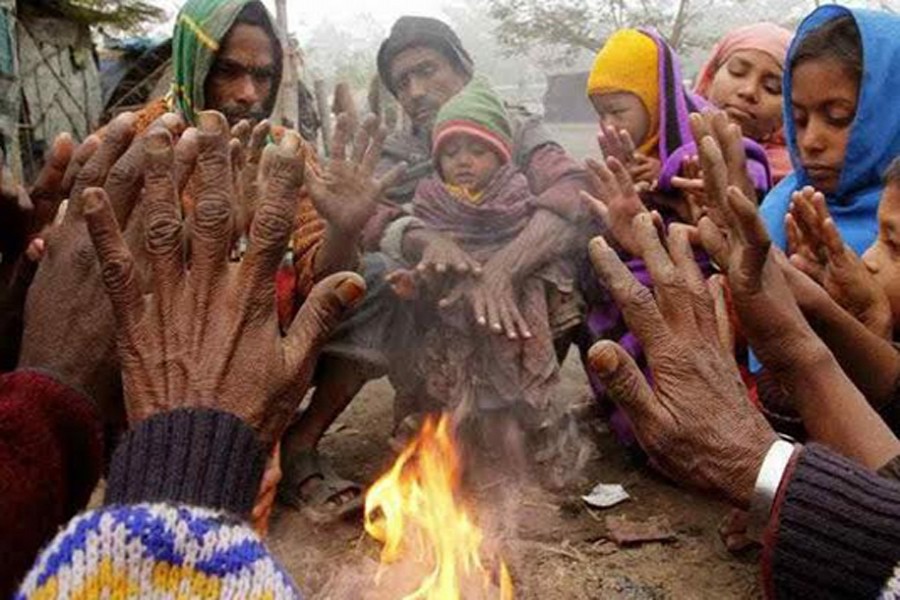
Published :
Updated :

After years - if not decades -- of absence of wintry bites, the entire country discovers suddenly in the grip of a severe cold wave. For long five days, the sun refused to show itself for once and only on Monday did it appear rather shyly for brief spells. On Tuesday the weather improved a lot but if the weather forecast is right from Saturday the country should be prepared to smart under another cold wave and to make the situation worse rains have been predicted to accompany it. Clearly, the forecast is grim for all but only more so for the poor and those living in shacks and huts with hardly any defence against bone-chilling cold. Most people suffered on account of their ill preparation for such a severe cold wave. For years now warm clothes come out of closets in the first or second week of January and the global warming has convinced people that wintry chill will never return. Upper class people have become accustomed to wearing warm clothes at the slightest hint of nippy weather.
It is only natural that the poor and the underprivileged cannot afford such a luxury. In their makeshift or shabbily constructed shelters even a mild winter wreaks havoc. The middle-class and lower middle-class people are now better off on account of availability of warm wears called rejected lots as those failed to live up to the required quality of the importers abroad. This sudden cold spell saw a spree of warm clothes purchase among these two categories of people. Footpath vendors or the seasonal amateur traders who display their wares on vans for a few hours started making a windfall profit as the demand soared well beyond the expectation. Warm articles of all varieties registered a price hike - at times double the going rate a few days before the cold spell set in.
Thus if the middle-class and even the lower middle-class could somehow manage to procure required warm wears, the hapless floating people and the wretched slum-dwellers suffered most because of the price increase. The second-hand or old warm wears also registered price spurt to their woes. In a situation like this, some organisations or generous people came forward to distribute warm clothes among the poor. But this was not enough for the purpose. In the country's north where mercury dips lower than the rest of the country, such an organised programme is most essential.
In a society that is increasingly becoming short of fellow feeling, the youth brigades of every locality are now more conspicuous by their absence. But once such brigades collected used clothes from their locality and made a mission of distributing those among the poor. The upper and middle-classes have extra warm clothes they no longer find stylish or fit enough. They can easily dispense with those if only there are volunteers to collect them and reach them to the needy. Today's young generation, as findings reveal, are becoming detached even from their families. That they would not feel the urge to help the distressed is, however, not axiomatic. Motivated, they can take upon themselves the task of doing such social services.


 For all latest news, follow The Financial Express Google News channel.
For all latest news, follow The Financial Express Google News channel.